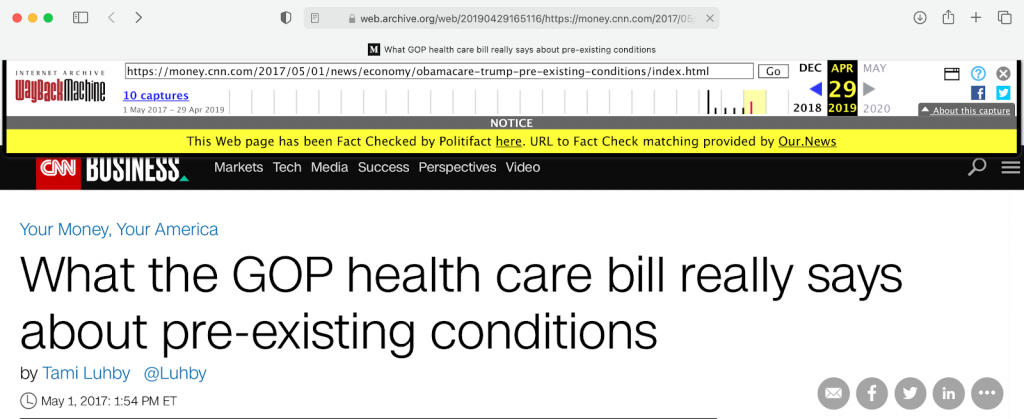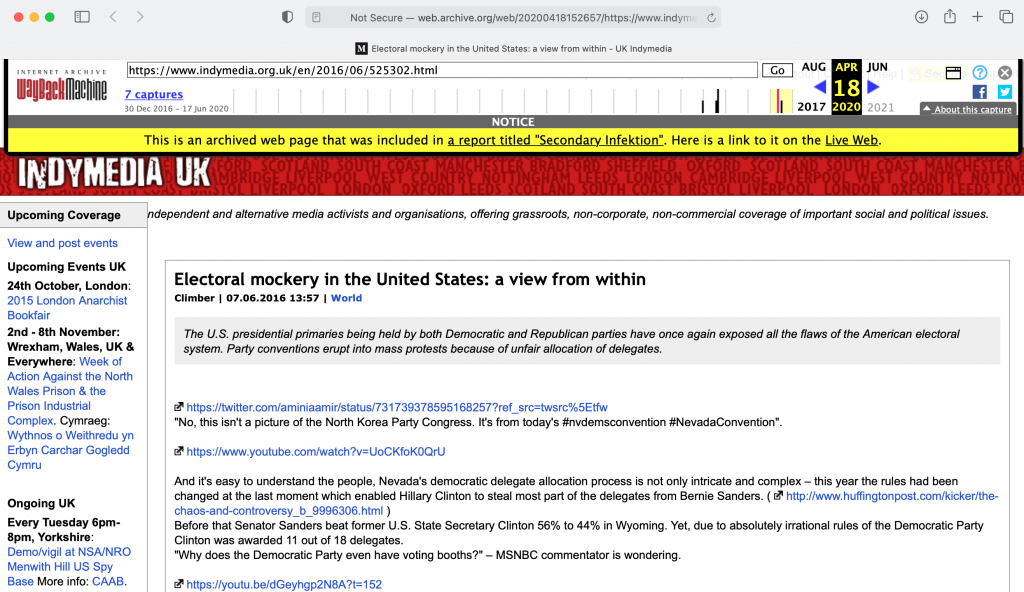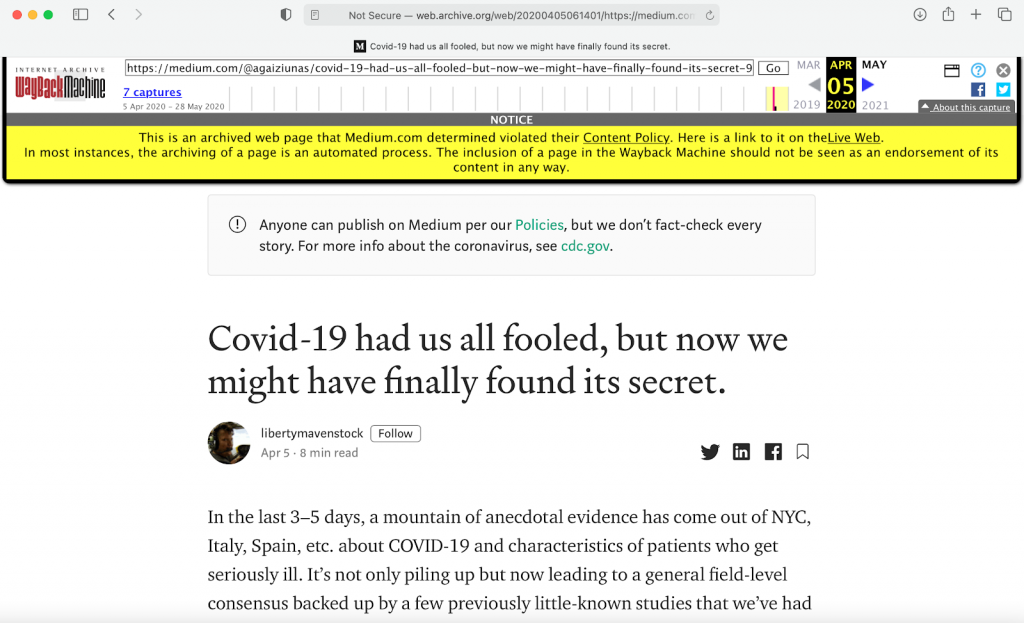Mark Graham
Fact Checks and Context for Wayback Machine Pages
Fact checking organizations and origin websites sometimes have information about pages archived in the Wayback Machine. The Internet Archive has started to surface some of these annotations for Wayback Machine users. We are attempting to preserve our digital history but recognize the issues around providing access to false and misleading information coming from different sources. By providing convenient links to contextual information we hope that our patrons will better understand what they are reading in the Wayback Machine.
As an example, Politifact has investigated a claim included in a webpage that we archived. Our.news has matched this URL to the Politifact review which allowed us to provide a yellow context banner for Wayback Machine patrons.

In a different case, we surfaced the discovery that a webpage is part of a disinformation campaign according to the researchers at Graphika and link to their research report.

As a last example, the Internet Archive archived a Medium post that was subsequently removed based on a violation of their Covid-19 Content Policy.
As a library, our intention is to provide access to source material that might otherwise disappear but doing so with context prominently displayed.

We would like to acknowledge the hard work of the organizations we are building upon in order to provide context for archived web pages: FactCheck.org, Check Your Fact, Lead Stories, Politifact, Washington Post Fact-Checker, AP News Fact Check, USA Today Fact Check, Graphika, Stanford Internet Observatory, and Our.news.
We welcome feedback and suggestions about how to make the Wayback Machine better.
Mark Graham is the Director of the Wayback Machine.
